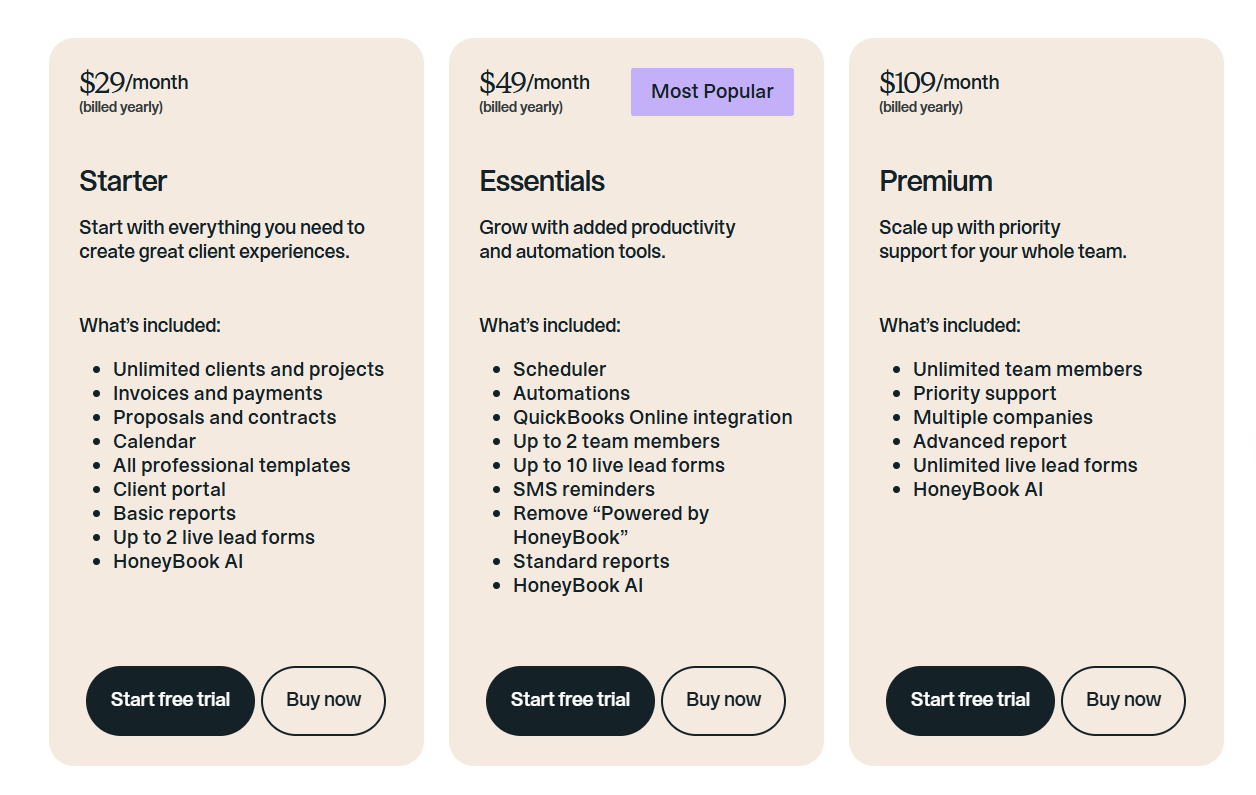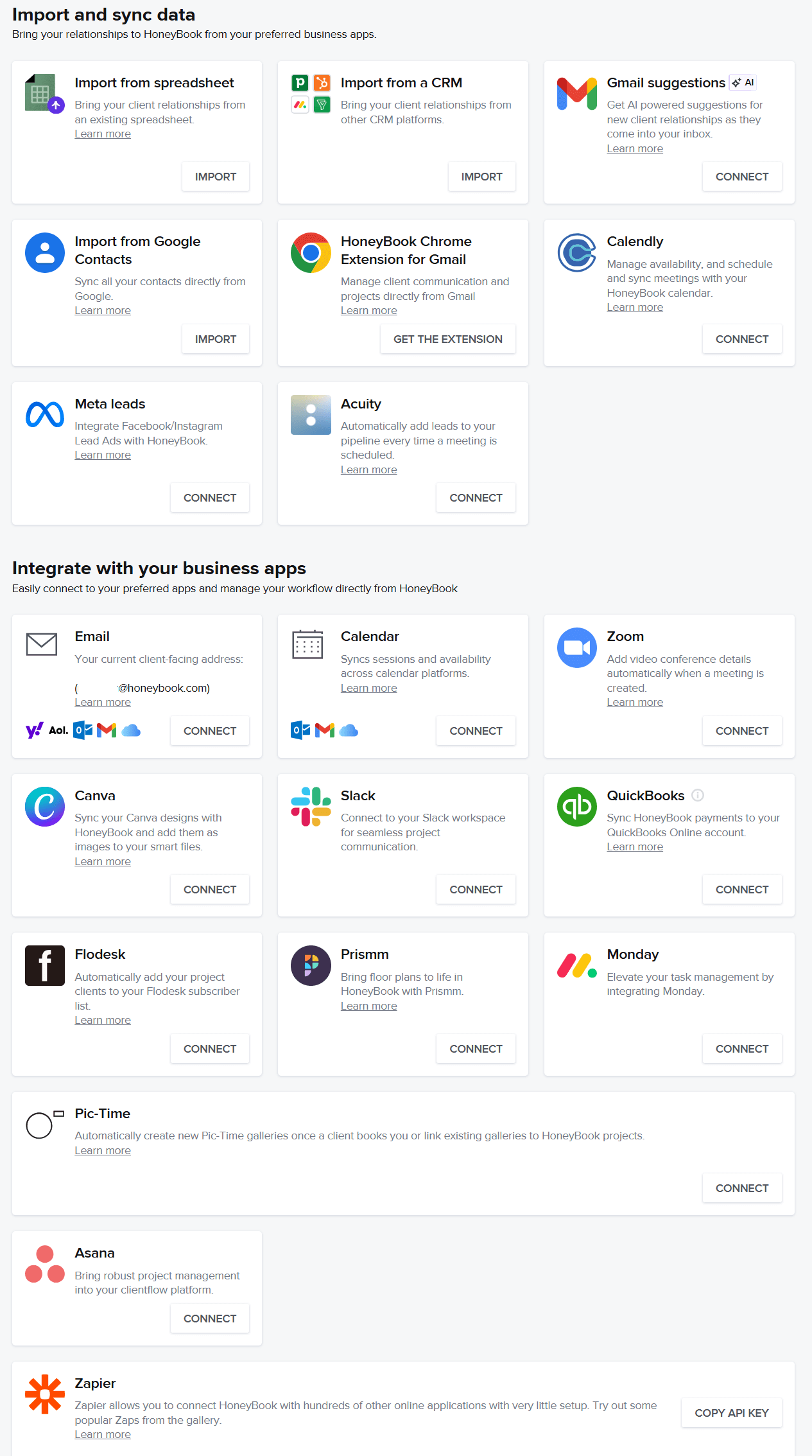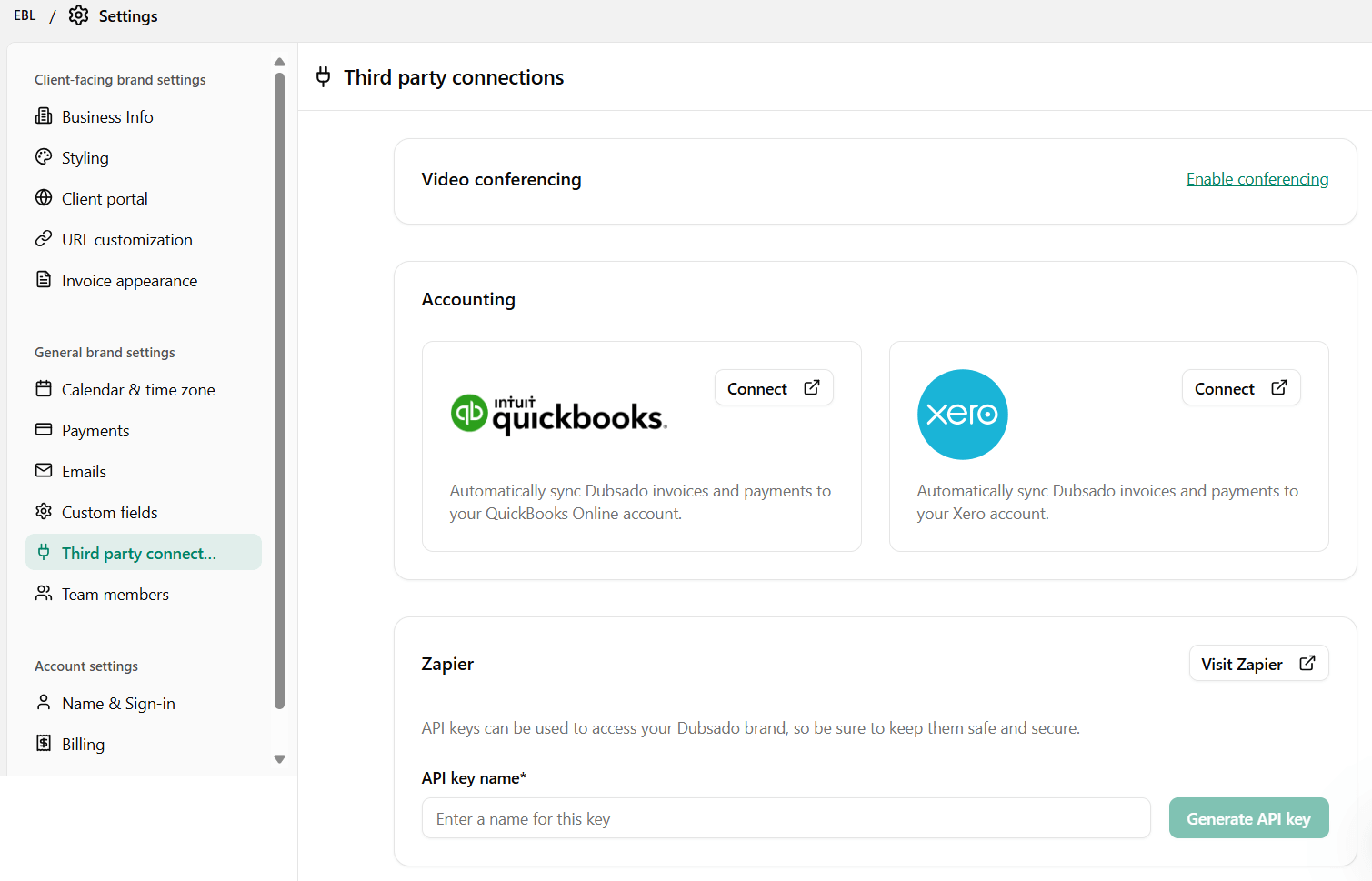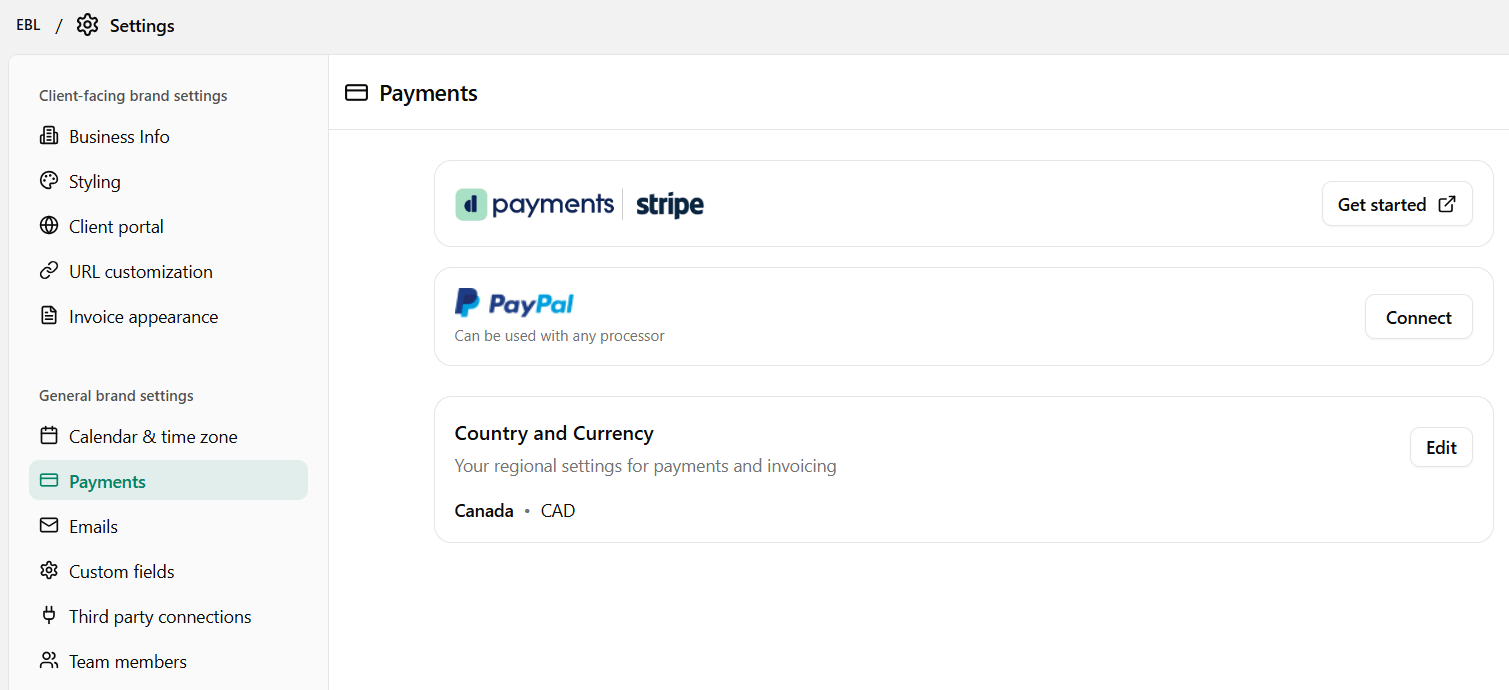Dubsado vs HoneyBook: Which One Should You Use? [2025]
Last Updated December 2025
Dubsado and HoneyBook are both client relationship management tools for small businesses. HoneyBook is easier to set up and comes with guided templates, while Dubsado offers more advanced automation, customization, and payment flexibility. The best choice depends on your business needs.
Why Compare Dubsado and HoneyBook?
Running a business comes with its own set of challenges. One of the biggest challenges is finding the right software to manage your clients and streamline your business processes.
Both Dubsado and HoneyBook are popular choices for service-based businesses. In this guide, you will see their pricing, features, and key differences so you can decide which one is best for you.
If you are new to either platform, you may want to start with a high level overview first. I have a full breakdown of what Dubsado is and how it works for service based businesses, as well as a beginner guide to what HoneyBook is and who it is best for.
Quick Comparison: Which CRM Wins?
| Feature | Dubsado | HoneyBook |
|---|---|---|
| Best For | Complex automation & custom branding | Fast setup & user-friendly interface |
| Availability | Global (Stripe, Square, PayPal) | USA & Canada Only |
| Workflows | Highly customizable & flexible | Linear & simplified |
| Learning Curve | Steeper (Great for tech-comfy users) | Low (Great for beginners) |
| Autopay | Included at no extra cost | Higher fees for autopay transactions |
Disclosure: This post contains affiliate links, which means I may earn a commission if you click through and make a purchase. This comes at no additional cost to you.
HoneyBook vs Dubsado
How Much Does HoneyBook Cost?
As of February 2025, HoneyBook updated its pricing:
Starter plan: $29/month billed annually or $36/month billed monthly
Essentials plan: $49/month billed annually or $59/month billed monthly
Premium plan: $109/month billed annually or $129/month billed monthly
HoneyBook plan pricing
How Much Does Dubsado Cost?
As of December 2025, HoneyBook updated its pricing:
Dubsado Starter plan: $335/year if billed annually or $35/month if billed monthly.
Dubsado Premier plan: $525/year if billed annually or $55/month if billed monthly.
Dubsado also offers a 21 day free trial to test out their features.
If you want a deeper breakdown of plans and features, you can read my full Dubsado pricing guide here.
Dubsado’s pricing plan
What Integrations Does HoneyBook Offer?
HoneyBook connects with:
Chrome Extension for Gmail - to manage your email via Gmail but keep track of things in HoneyBook
Calendly
Acuity
Meta leads
Email integration
Calendar integration
Zoom
Canva
Slack
Quickbooks
Flodesk
Prismm
Monday
Pic-Time
Asana
Zapier
Honeybook integrations
What Integrations Does Dubsado Offer?
Dubsado connects with:
Email integration
Calendar integration
Video conferencing: Google Meet, Zoom, 8x8
Quickbooks
Xero
Zapier
Dubsado integrations (email & calendar are on a different page)
What Features Make HoneyBook Stand Out
Guided Setup
HoneyBook makes onboarding simple with a guided setup. When you create an account, you add your branding and select your industry. HoneyBook then loads templates that fit your business and shows you a checklist of steps. The checklist makes it easy to track what is done and what is left, so you can start bringing in clients quickly.
HoneyBook dashboard
Beautiful Templates
HoneyBook includes a large library of well-designed smart file templates for free. The templates are polished and easy to customize, which helps you create branded documents without starting from scratch.
HoneyBook has many templates to speed up your smart file creation
Smart Files with Flexibility
Smart Files are one of HoneyBook’s most flexible features. Instead of being limited to a single proposal–contract–invoice flow, you can combine proposals, contracts, invoices, schedulers, questionnaires into one file. You can design multi-page experiences with text, images, or videos. This gives you more creative control over the client journey.
Batch Emails
With batch emails, you can send the same email to multiple clients at once. This feature is helpful for announcements, updates, or reminders without having to email each client one by one.
Multi-Client Projects
HoneyBook allows you to add more than one participant to a project. All clients involved can view the same forms, contracts, and communication even when these are sent via automations. This is especially useful for wedding professionals and others who work with couples or teams.
What Features Make Dubsado Stand Out
Advanced Flows and Automation
Dubsado is best known for its flows (previously called workflows). You can build detailed automations with many triggers and actions, including sending forms, contracts, invoices, schedulers, or emails. You can also change project status, pause a flow, or add a to-do for manual personalization. This gives you more control and saves time by running processes automatically.
Global Access
HoneyBook is only available in the US and Canada, meaning that you need to have a US or Canada based bank account to receive payment.
Dubsado works anywhere you can connect Stripe, Square, or PayPal. This makes it the better option for international businesses.
Payment Processing
Dubsado integrates with Dubsado Payments powered By Stripe, PayPal or Square to receive online payment from clients. You can set up autopay at no extra cost, and keep transaction fees lower than HoneyBook’s in-house processor.
Dubsado uses Dubsado Payments Powered by Stripe, Square and PayPal as payment processors
How Do Automations Compare?
Automation is one of the most important areas where these platforms differ.
Dubsado Flows
Dubsado flows can include many triggers and actions in one flow. Here are a list of actions you can use in a flow:
Send Email
Send Form
Send Contract
Send Scheduler
Send Primary Invoice
Create Invoice
Create Task (previously todo)
Update Project Status
Add Project Tags
Archive Project
Activate Portal
Deactivate Portal
Pause Flow
Hold Actions Until
Start A New Flow
Dubsado Flow actions
Because these options can all be combined into a single flow, you can build complex flows that manage nearly every part of your client process. You can also pause flows or add manual tasks so you can edit forms and emails before they go out. This mix of automation and manual control makes Dubsado powerful for businesses with detailed client journeys.
HoneyBook Automations
HoneyBook automations improved in 2024 and now include more triggers and actions. Conditional logic was also added, which means an automation can branch into different paths depending on what the client does, such as booking a call or not. This makes it easier to guide clients through different experiences without having to build separate flows for every outcome.
These are the triggers to start an automation in HoneyBook:
Meeting scheduled (Calendly)
Contact form submitted
Lead form submitted
Session scheduled
Session starts
Session ends
File is completed
Questionnaire submitted
First payment paid
Invoice paid in full
Contract signed
All signatures signed
Project date
Project end date
Project moved to completed
These are the actions you can take inside of a HoneyBook automations once the trigger has happened:
Send email
Send file via email
Create task
Move pipeline stage
Wait for (number of minutes, hours, days, weeks or months)
Condition - to set a yes and no path
While these improvements are helpful, HoneyBook still has restrictions that can make complex processes harder to manage:
You can only use one trigger per automation
You cannot edit emails or forms once an automation starts
Automations cannot be applied manually, they must always be triggered automatically
While the conditional logic feature is an advantage, building the same process in HoneyBook often requires creating many short automations instead of one longer flow. For businesses with simple processes, this may be fine. But for businesses with more complex client journeys, it can feel restrictive.
Dubsado has an edge here because it allows you to combine multiple triggers and actions in one flow, edit emails and forms even after an automation begins, and manually apply flows when needed. This gives you more control and flexibility, and makes it easier to tailor the experience for each client without starting from scratch.
How Do Payment Processors Compare?
HoneyBook: Uses its own in-house payment processor. Credit card payments are charged 2.9 % + 25¢ per transaction. ACH bank transfers are charged a 1.5% fee. Autopay is available, but the fee rises to 3.4% plus 9¢ per transaction.
Dubsado: Connects with Stripe, Square, and PayPal. You pay only the standard processor fees, and autopay is included with no extra charge.
HoneyBook charges a higher processing fee for using autopay
Which Free Trial Is Better?
HoneyBook: 7-day free trial.
Dubsado: 21-day free trial of their Premier plan.
Dubsado’s trial gives you a bit more time to test the platform before signing up.
Walkthrough: Dubsado vs. Honeybook
Watch this video where I go through the strengths of both Honeybook and Dubsado to help you make a decision on which CRM is the best fit for you.
TLDR: Comparing Dubsado and HoneyBook in 2025
Based on the comparison between HoneyBook and Dubsado:
HoneyBook is best if:
You want an easier guided setup and ready-to-use templates
You prefer Smart Files with more flexibility than Dubsado’s 3-in-1 proposals
You need multi-client projects
You want an easy system with simple automations
Dubsado is best if:
You need advanced flows and powerful automation
You need to use payment processors like Stripe, Square or PayPal
You need lower payment processing fees for autopay
You run a business outside the US or Canada
Dubsado vs HoneyBook for Wedding Planners 💍
Wedding planners typically manage long timelines, multiple decision makers, contracts, invoices, questionnaires, and ongoing communication over many months.
Dubsado is often the better fit for wedding planners if you:
Need detailed workflows that span months or even a year
Want full control over when emails, forms, and invoices are sent
Manage complex onboarding, planning, and post wedding processes
Dubsado’s flows allow wedding planners to automate large portions of their process while still pausing steps, editing emails, or making manual adjustments when needed.
HoneyBook can work well for planners with simpler offerings or fewer custom steps, but many wedding planners eventually outgrow its automation limits.
Dubsado vs HoneyBook for Photographers 📸
Photographers often have more repeatable, session based workflows that need to run smoothly and consistently.
HoneyBook can be a good fit for photographers if you:
Want a simpler and faster setup
Offer similar packages for every client
Prefer simpler automations
Dubsado is a better fit for photographers if you:
Offer multiple session types or custom packages
Want detailed post session workflows
Need more control over when questionnaires, emails, and follow up emails are sent
Work across weddings, portraits, branding, or commercial photography
Photographers who start with HoneyBook often switch to Dubsado as their offerings become more customized.
Want Help Setting Up Dubsado or HoneyBook?
Setting up a CRM takes time, but you do not have to do it alone. I offer done-for-you setups for both Dubsado and HoneyBook.
Book a free discovery call to see which system is right for you.
If you choose Dubsado, sign up using my code emakatiraee to save 30% on your first month or year.
If you choose HoneyBook, sign up with my link and save 30% on your first two months or year.











